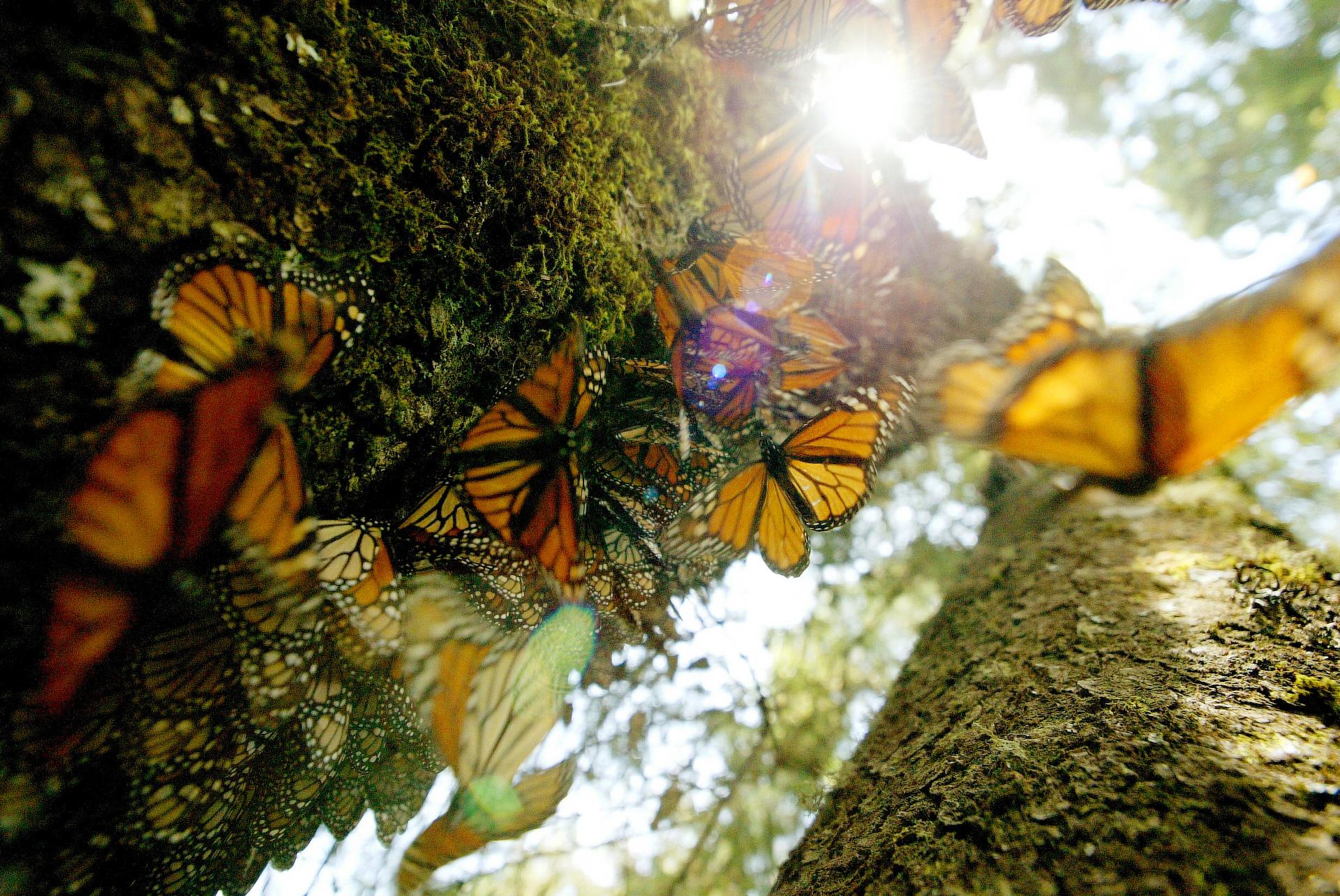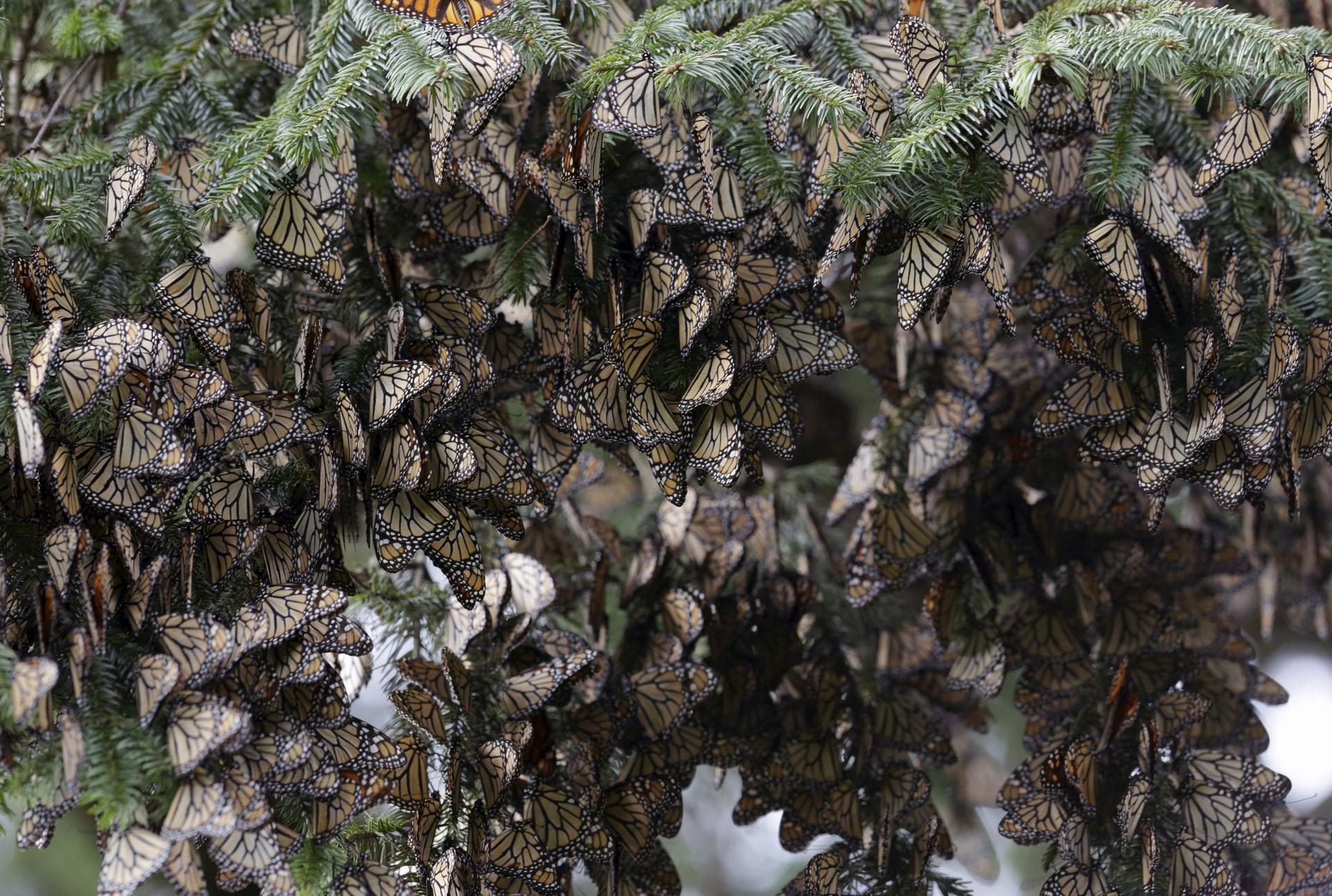The monarch butterfly, a symbol of North American cooperation, rebounds this winter
Hundreds of Monarch butterflies rest on a pine tree in Angangueo, Mexico, November 28, 2015.
There’s some good news for monarch butterflies this winter.
The iconic black and orange-yellow migratory butterflies have been dying off over the past several years due to habitat loss.
But this winter, the number of monarchs hibernating in southern Mexico has rebounded, according to a December survey. Winter colonies covered about 10 acres of forest this winter, up from around three last winter.
“This year we are seeing this bump, which is good news of course,” said Jorge Rickards, field programs director at the World Wildlife Fund Mexico. “We were very worried, because we have been seeing for the last at least six or seven years a decline in the monarch populations."

Rickards attributes the increase to a mix of factors, including good weather conditions during the migration to Mexico and conservation work over the past several years in the US, Mexico and Canada.
In Mexico, Rickards says illegal logging that had been stripping the monarchs of their resting areas was essentially halted two years ago.
In the US, volunteers and government agencies have focused on planting a milkweed corridor along the migration route. Milkweed is essential to the monarch reproductive cycle, as females will only lay their eggs on milkweed plants and larvae eat it before turning into butterflies.
Despite better numbers this year, however, migratory monarch populations are still significantly lower than during their historic peak. In 1996, according to the World Wildlife Fund, migratory colonies took up nearly 45 acres of forest in Mexico.
“It’s still low,” Rickards says, “we cannot sing a victory yet,”
The migratory population of monarchs is among the longest travellers in the insect world, flying as much as 2,800 miles from Canada or the US to Mexico in the fall. The flight back north takes four or five generations, and it’s not known how butterfly offspring find their way back to the winter sanctuary in Mexico each year.
“It’s biologically a very unique migration,” Rickards says. “It’s also iconic; it binds all three countries and it’s a symbol of cooperation.”
Every day, reporters and producers at The World are hard at work bringing you human-centered news from across the globe. But we can’t do it without you. We need your support to ensure we can continue this work for another year.
Make a gift today, and you’ll help us unlock a matching gift of $67,000!
